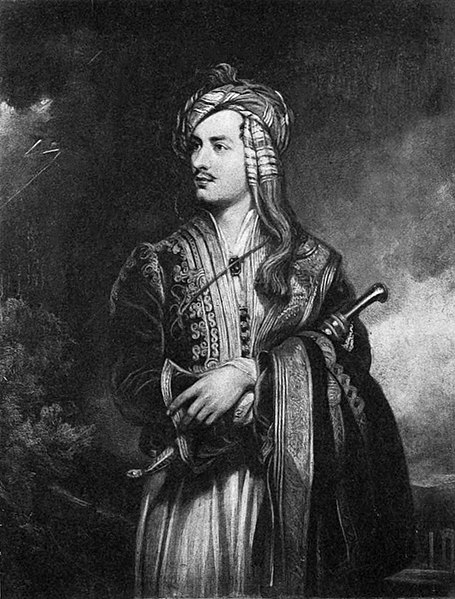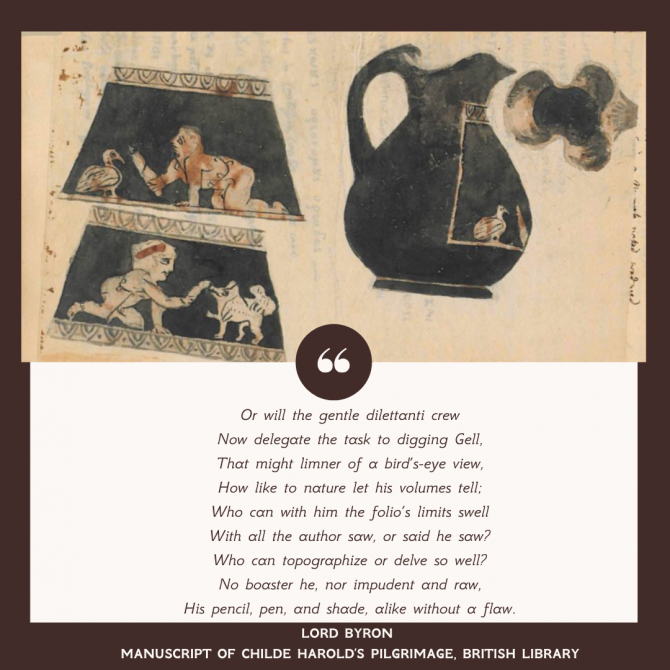
🇬🇷 philhellene (adj.)
“a friend of Greece, a foreigner who supports and assists the cause of the Greeks,” from Greek philhellēn, from philos “loving” + Hellēnes “the Greeks”. Originally in English in reference to the cause of Greek independence; later also with reference to Greek literature or language. Related: Philhellenic; Philhellenism.
A Great Philhellene, a Greek National Hero, and above all a Romantic Poet: Lord Byron
Byron was a bitter opponent of Lord Elgin’s removal of the Parthenon marbles from Greece, and “reacted with fury” when Elgin’s agent gave him a tour of the Parthenon, during which he saw the missing friezes and metopes. He penned a poem, the Curse of Minerva, in 1811 to denounce Elgin’s actions.
The poem consists of 312 lines and it is a severe attack against Lord Elgin and his taking away from Greece the so-called «Elgin Marbles», the marbles of the Parthenon on the Acropolis of Athens. Ever since these marble sculptures arrived in London early in the 19th century, they have caused controversy.

The Philhellenic Movement, which developed in 1823, was supported by Byron’s voluntary sacrifice to invest large amounts of his fortune to fund the maintenance of Greek warships and he even launched his fighting unit. Byron also established himself as a link between the Greek revolutionaries and the London Philhellenic Committee, a group of British Philhellenes who channeled more money to support the Greek military.
His death hurt deeply all the Greek renegades. Men and women grieved for his death, he became a symbol of patriotism and declared a national hero. After his funeral in Messolonghi, his body was moved to London. In those days Dionysios Solomos wrote the poem “On the death of Lord Byron” to honor the life and work of the Great Philhellene.
